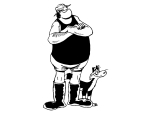Last week, both major fertiliser traders and farmer co-operatives, Ballance and Ravensdown dropped prices of its main offerings.
Ballance wrote to farmers announcing "significant" reductions - urea dropping by $100/tonne to $880/tonne, SustaiN down by $100 to $929/tonne. SuperNZ also drops by $100/t to $910/t.
Ravensdown also dropped its urea price by $100 to $889/t, N-Protect, from $1,038 to $938 and Granular Potassium Chloride - from $1,539 to $1,230/t.
Ballance chief executive Mark Wynne told Rural News that while globally fertiliser supply has kept up with expected demand, farmers are now using less fertiliser due to high prices.
"So, the market is doing a correction - continuing to decline back towards long-run averages," he says. "They are not there yet but they are a lot closer than they have been over the last 12 months."
Wynne describes Ballance's fertiliser sales over the past year as a "game of two halves". Spring sales were robust with prices still climbing but demand over autumn reduced significantly.
Wynne puts this down to several factors - rising input prices and finance costs, softening of farm returns for both meat and dairy sectors and good grass growth.
"On top of this some farmers had tax to pay for the former season: all this put farmers into a squeeze, so many have buttoned off fertiliser consumption.
"But you can't do this forever, especially if you have high producing systems," says Wynne.
With prices coming back towards long term trends, Wynne is confident that fertiliser demand will start to climb again.
Ravensdown chief executive Garry Diack told Rural News that fertiliser usage had dropped on average 30% across the globe. Ravensdown's sales had dropped "plus or minus 20%".
He also says that the drop in global demand has led to prices coming down.
Diack remains worried that Brazil and China, who are out of the market, could return soon and prices could rise again.


















